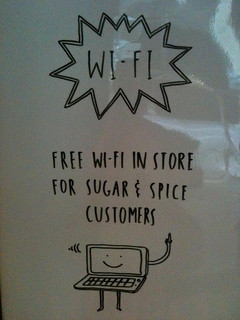
 Many periods of history can be characterized by new kinds of amenities which were either not commonly used or unheard of before but which started being regarded as desirable or even absolutely indispensable. It doesn’t mean that the importance of such novelties overshadows the significance of other processes or events but it gives a more thorough understanding of factors that determined the way people have been evolving.
Many periods of history can be characterized by new kinds of amenities which were either not commonly used or unheard of before but which started being regarded as desirable or even absolutely indispensable. It doesn’t mean that the importance of such novelties overshadows the significance of other processes or events but it gives a more thorough understanding of factors that determined the way people have been evolving.
By the end of the 20th century such conveniences as showers, air conditioners, electro heating, fridges, TV, phones etc. had become customary. Not every household could boast having a personal computer then (let alone Internet access), however it wasn’t a luxury article that only the rich could afford.
The beginning of the 21st century added Wi-Fi to the list of amenities that we’d rather were not lacking. And later – to the list of things we would love to have for free.
Blue Grass Airport (LEX), Lexington, KY, was supposedly the first airport with free Wi-Fi. It wasn’t only Wi-Fi though. Back in 2001 not every laptop had wireless card so in order to provide free Internet access to a larger number of people there were also plenty of Ethernet sockets installed in the terminal area. The signal was available in the terminal and at the parking lot. The airport rivals – Louisville International and Cincinnati/Northern Kentucky International being only within less than 2 hour drive, the LEX authorities had a strong incentive to come up with new ways to increase the passenger turnover.
Omni Hotels & Resorts was allegedly the first hotel chain to offer free Wi-Fi to its guests in 2003. The example was fallowed and by the end of 2004 many well reputed players in hospitality industry including Best Western, Marriott Residence Inn, Kempton and Holiday Inn had had new access points installed and started offering Wi-Fi free of charge. Previous efforts to provide Wi-Fi as a paid service didn’t do much for the benefit of both parties – the visitors who usually spend nights in hotels and do not stay there all day long – are unwilling to pay the high fees on a daily basis, and for hotels proprietors such Wi-Fi neither attracts more folks to stay nor generates much revenue itself. So a new approach of providing Wi-Fi as a complementary service, a free cherry at the top of a paid cake, as it were, addressed the visitors’ actual need. It might seem odd on the face of it but, according to the survey carried out by JiWire in 2010, it is hotels and resorts where people are more likely to use Wi-Fi then in cafe or in an airport, or in other public places.
Sunnyvale, CA was the first American city where free advirtize-sponsored metro-scale Wi-Fi was offered to local residents and visitors. The project was launched in 2005 by MetroFi, a municipal wireless network provider that later expanded their operations to several other American cities. Although they finally decided on terminating their business activity in 2008, the company is regarded as a pioneer in introduction of free Wi-Fi access which is not limited to a coffee-shop or hotel premises and is available throughout the city.
The initiative caught on and nowadays free municipal Wi-Fi can be found in many regions, big metropolises and small towns, all around the globe. The density of coverage differs from city to city and sometimes leaves much to be desired but what is really important – the trend goes up. Cell phones boom being over, the developing countries are trying to catch up with North America and Western Europe in Wi-Fi. Recently the authorities of Bangalore, the capital of Karnataka state, India have released their plans for setting up the first free Wi-Fi network in the country. The pilot project is to consist of 2 access points but it is the first step of what may become a long walk.
According to JiWire Mobile Audience Insights Report for the second quarter of 2010 (the company has already been mentioned above), it was for the first time ever that the number of free Wi-Fi hotspots in the US surpassed the number of paid ones.
Now there are over 134 thousand public hotspots in the United States making American people the third largest public Wi-Fi nation in the world. The United Kingdom and South Korea did even a more impressive job: over 182 and 186 thousand public wireless access points respectively. China is on the fourth place (over 104 thousand) and closes the range of the leaders: other countries are falling behind by huge margin. France takes the fifth place (over 32 thousand); Taiwan – the sixth (over 24 thousand); Russia – the seventh (well over 16 thousand); then follow Japan (almost15 thousand), Germany (over 15 thousand) and Sweden (a bit under 10 thousand).
Enough of the history however. Free Wi-Fi keeps growing in popularity and is about to have a great future. Unfortunately for private sector, its popularity can hardly add anything worth mentioning to the profit column of their balance sheets. The lack of free Wi-Fi is already considered a major drawback by many so the presence of it will no longer be valued as a special benefit and will hardly draw new customers to a restaurant. On the other hand, its unavailability is very likely to turn away existing ones.
Other wireless technologies (3G, 4G) will try to take over the market and eat away at the number of Wi-Fi users. But will such Internet become free? And if yes, who will pay for it? Small family businesses – probably not. National chains? Many of them can surely afford it but what for? Free 4G would be equally free both in hotel premises and miles away from it. And it will also be free in other hotels irrespective of whether their proprietors joined in the financing of the free Internet or not. It is curious how one of Wi-Fi most substantial shortcoming, – a limited range, has turned into advantage as soon as private business started trying to exploit it as a marketing tool.





Quick Customer care response, accurate and broad assistance, easy to use client area.....





I am very happy with the service. I am with site valley for many years and at the present usimg 2 hosting packages. Their service is excellent and super fast. Thanks & Greatly Appreciated





I've been hosting my websites with Sitevalley for more than 6 years. Very satisfied with the services and reliability they provide, competitive prices, almost no downtime, fast and knowledgeable customer support.





I have been using side valley for a couple of years now and have to say I am very happy with the service they offer.I use many Hosting services but site valley stands out in front. Reliable service, great support.I don't normally leave reviews but felt I wanted to for this service as it has been fantastic





I didn't want to review so soon on into taking out hosting with site valley but I feel obliged because their customer service is outstanding, second to none, every time I had an issue it was sorted immediately. I would highly recommend Site Valley.





I have been with Sitevalley for over a year and it's the best hosting I have EVER used. And I have been through a lot of them.





The support staff are amazing, and it's clear that they have a passion for hosting websites. I've rather enjoyed this webhosting company and it's stability for the price is bar-none, amazing.





My collegue adviced me to use SiteValley as a reliable hosting provider with great prices, professional and fast Customer Service. My experience with SiteValley was exactly the way I was promised.





I have been with SiteValley for many years, and plan to stay with them for many more. Customer support is very responsive and knowledgeable.
SiteValley.com is rated 4.8 / 5 based on 329 Reviews »

© 2001 – 2026 SiteValley.com. All Rights Reserved.